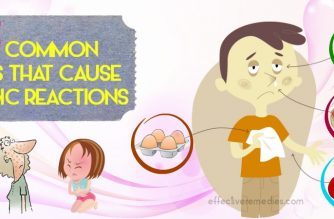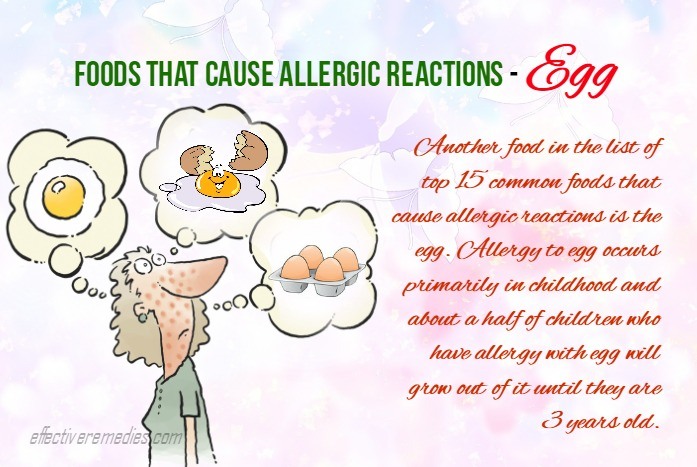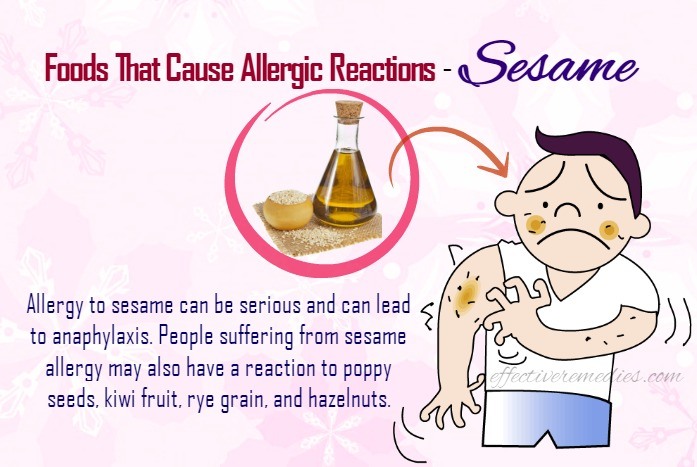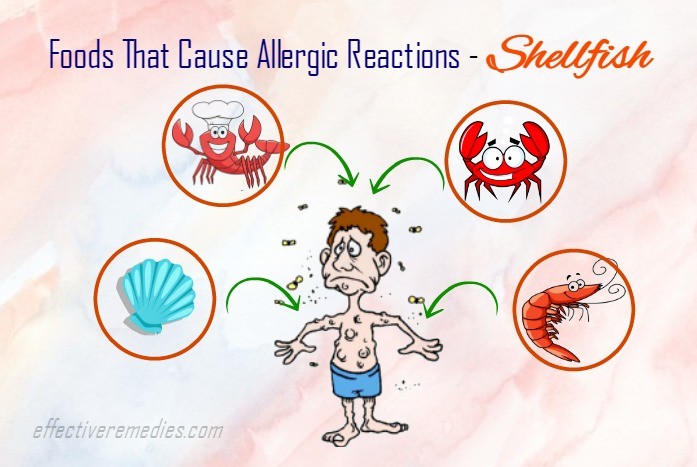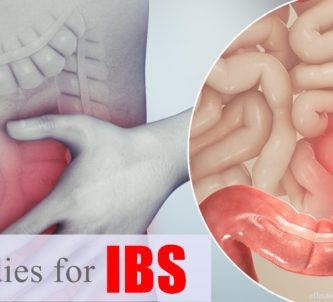According to the Centers for Disease Control and Prevention (CDC), food allergies estimated effects 4 to 6 percentages of children and 4 percentages of adults. The symptoms of food allergy are most popular in babies and kids. However, they may appear at various ages. The allergy reaction symptoms can vary. They depend on which kind of allergens that you are allergic to. This article in EffectiveRemedies.com will show you top 15 common foods that cause allergic reactions. I collected information to write this writing from reliable websites. Let discover to avoid consuming these foods if you do not want to have any allergic reaction!
Top 15 Foods That Cause Allergic Reactions You Should Avoid
1. Milk
The first food in the list of top 15 common foods that cause allergic reactions is milk. Cow milk allergy is not like lactose intolerance. According to the NDDIC (National Digestive Diseases Information Clearinghouse), people who suffer from lactose intolerant will lack lactase enzyme, which transfers lactase into sugar; however, they may usually tolerate some lactose in each of their diets; hence, they cannot digest it fully. In other words, people suffering from a milk allergy can experience severe or life-threatening reactions after they consume just 1 or 2 sips of milk.
2. Coconut
Allergy with coconut is an uncommon problem. Patients who are allergic to coconut may have some serious reactions like anaphylaxis, which may be dangerous. People who are allergic to nut and/or latex are more likely to have an allergy to coconut.
3. Egg
Another food in the list of top 15 common foods that cause allergic reactions is the egg. Allergy to egg occurs primarily in childhood and about a half of children who have allergy with egg will grow out of it until they are 3 years old. The main reason causing to egg allergy is 3 proteins that are contained in the egg white. They are orosomucoid, conalbumin, and ovalbumin. Cooking may destroy some of 3 these allergens; However, it may not help you to get rid of allergies fully because people can react to either cooked eggs or raw eggs.
Egg allergy also causes an abnormal reaction in the immune system of people who have an allergy to the egg when they digest egg proteins in any form. People having an allergy to egg should see a doctor before receiving any vaccine because these immunizations can contain egg protein.
EffectiveRemedies Partner Solutions

Ask a Doctor Online and Get Answers in Minutes, Anytime!
Have medical questions? Keep asking questions to a Verified Expert until you get the answer you need.
In addition, some people occasionally have an allergic reaction to egg because they are allergic to chicken, bird feathers, turkey meat, quail meat, which is called bird-egg syndrome.
4. Fruit And Vegetable
Allergic reactions to vegetables and fruits are commonly mild and just affect mouth and lips. It causes a rash and itching where the food touches your lips and mouth and is considered as oral allergy syndrome. Many people who often have an allergy to vegetables and fruits will also have an allergy to weed and tree pollens. For example, those who have birch pollen allergic reactions also have an allergy to apples.
Cooking may destroy many allergens in vegetables and fruits, hence, cooked vegetables and fruits will not often cause a reaction in people who have an allergy to fruit.
5. Lupin
Lupins are popular garden plants. They are associated with legumes like peas, beans, and lentils. Many types of lupin seeds are poisonous as they have bitter-tasting toxins. However, sweet lupins do not have these toxins and they may be consumed by humans or livestock. Now, people are commonly using the sweet lupin seeds in many food products to replace cereal grain such as flour and pasta.
Lupin allergy sometimes occurs in mainland Europe, where people use lupin flour widely in food products. Allergy to lupin can lead to severe reactions including anaphylaxis. The major allergens that were found in lupins are also contained in peanut. Hence, people who have peanut allergy may have reactions to lupins.
Stay with us for our next post to get more foods that cause allergic reactions!
6. Meat
People who suffer from meat allergy can have some reactions to beef, pork, chicken, or mutton. Sometimes, those who have an allergy to one poultry or meat types can also get reaction to other types. Cooking meat can destroy some allergens in it, however, cooked meat still causes reaction to some people.
The processed meats like frankfurters, pa-te, and luncheon meats sometimes have other ingredients, especially in milk products such as emulsifiers or flavour enhancers. Hence, people who have an allergy to milk may have a reaction to a meat product as it contains milk. For an instant, milk is often used in chicken nuggets in order to help the breadcrumbs be stuck in the chicken pieces.
7. Nut
Allergy to nut from a tree is usually lifelong. There are many nuts most likely causing allergic reactions such as walnuts, almonds, pecans, hazelnuts, Brazil nuts, pine nuts, cashew nuts, and macadamia nuts. In rare case, all these nuts can lead to anaphylaxis in those who are sensitive. In addition, people sometimes have an allergy to a type of nuts may also get reaction to other nuts. Therefore, if you have an allergy to nuts, you should be careful when you consume nuts as well as unrefined (crude) nut oil. You'd better see a doctor get some advice.
8. Sesame
We don't know exactly how many people have an allergy to sesame, but it's quite popular in countries like Israel and Australia. We think that a number of people suffering from sesame allergy are raising possibly as there are more people using sesame products.
Sesame oil, sesame seeds, and other sesame products like tahini are widely used in cooking, for instant in Oriental or Turkish dishes, or in manufactured products like bread, biscuits, salads, hummus, and sauces. Allergy to sesame can be serious and can lead to anaphylaxis. People suffering from sesame allergy may also have a reaction to poppy seeds, kiwi fruit, rye grain, and hazelnuts.
People who have sesame allergy should avoid using sesame oil because it made by cold-pressed sesame seeds and is not refined, hence, it will have small amounts of allergens. This can lead to a reaction in those who are sensitive.
9. Spice
There many foods that cause allergic reactions and spice is one of them. Allergy to spice is usually rare and mild. However, severe reactions may happen occasionally. Some people can react to mustard, caraway, fennel, paprika, saffron, or coriander and less frequently to garlic, onions or chives. Allergic reactions to mustard are reported to cause anaphylaxis, especially in mainland Europe. This is a place where mustard is used commonly. The allergens in spices are same as those in vegetables and pollens. Therefore, people who have an allergy to birch and mugwort are more sensitive to spices.
10. Wheat
Wheat is one of the common foods that cause allergic reactions. Allergy to wheat is common, especially in babies. There are many allergens in wheat causing wheat allergy, however, the main allergen is a protein that is called gliadin. This is found in gluten and because of this, people having a wheat allergy are often recommended to consume a gluten-free diet.
Like all kinds of food allergies, if you believe you are allergic to wheat, you'd better talk to your doctor before changing your diet.
People suffering from wheat allergy are very sensitive to globulin and albumin that are 2 proteins in wheat. Allergic reactions may occur after you consume wheat, while you do exercise after consuming wheat or after you accidentally inhale flour in your home kitchen or a bakery.
11. Vegetable Oil
Vegetable oil is a mixture of oils. In the UK, they mostly use soy, rapeseed, sunflower, palm, coconut, palm kernel, and maize oils to make vegetable oil. When this oil appears in pre-packed food, they will be refined. This can help to remove proteins from the oils because the proteins in oils can lead to allergic reactions and sensitive people will not probably react to refined oils. There are some specialty oils like sesame oil and walnut oil not being refined, hence, if you are sensitive to the sesame, walnut seeds and nuts, you'd better avoid using their oil to keep allergic reactions at bay
12. Shellfish
A shellfish allergy is quite common. A number of various types of shellfish such as shrimps, prawns, lobster, crayfish, oysters, scallops, crab, mussels and clams may cause reactions in those who are sensitive.
People who suffer from an allergy to one of shellfish types often realize that they have a reaction to other types. Allergy to shellfish can often lead to severe reactions and someone may have reactions from the vapours when cooking shellfish.
The symptoms of shellfish allergy are most often caused by lobster, crab, and shrimp. Unlike other food allergies, shellfish allergy commonly develops in late childhood or adulthood. Some people have a fish allergy, but not react to shellfish. Similarly, some people may have an allergy to shellfish, but not react to crustaceans. Those suffering from severe shellfish allergies may experience an allergic reaction from inhaling airborne shellfish proteins or simply handling shellfish in a kitchen setting.
13. Rice
Allergy to rice is popular in many countries in Eastern Asia like Japan where rice is eaten commonly. However, it is not common in the UK. Those who have an allergy to rice may react when they consume it or inhale its pollen. Rice may lead to the symptoms of hay fever in areas where it is grown commercially.
People who suffer from rice allergy may sometimes have a reaction to many other foods belonged to the botanical family such as maize, barley, oats and rye, wheat, and some fruits like peach and apple.
14. Fish
The fish allergy may often lead to serious reactions including anaphylaxis. Allergy to fish occurs more in adults than children. This is probably because adults are eaten these foods more than kids.
People who have an allergy to a type of fishes like cod often have a reaction to other fish types of fish like hake, haddock, whiting, and mackerel. This is because these fishes contain the similar allergens. Cooking cannot kill fish allergens. In fact, someone suffering from fish allergy may be allergic to cooked fish but not raw fish.
15. Soy
Soy allergy typically occurs during childhood, however, it may also be possible in adults. Soy is included in processed food, which will make it not easy to avoid in each standard diet of American. People who have soy allergy from medium to severe level may also experience some allergic reactions after they consume other legumes like peanuts, beans, lentils, and licorice.
Recommended articles:
Natural Home Remedies For Allergies In Children & Adults
How To Get Rid Of Swollen Lip Fast And Naturally
How To Use Garlic For Sinus Infection
If you want to know more foods for other diseases and conditions, let access our main Superfoods page. You’ve read top 15 common foods that cause allergic reactions. Let keep in mind this useful information and share it with your friends and family to avoid consuming. If you want to ask anything about this writing, freely ask me by leaving your question below. Also, share your knowledge with us if you know other foods that cause allergic reactions.

